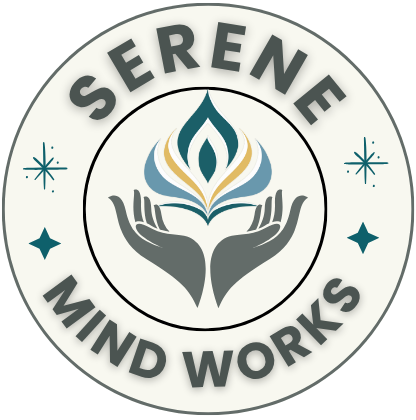
Mindful journaling is like having a heart-to-heart with yourself. It’s more than jotting down your day’s events; it’s about truly connecting with your emotions and thoughts. By doing so, you gain a better understanding of what’s going on inside your mind and soul. This practice helps you reflect with intention, paving the way for a healthier, more centered life.
Journaling connects directly with emotional health by giving you a safe space to express feelings that might otherwise go unnoticed. It’s like a trusty safety valve for emotions, letting you pour out what’s bottled up inside. This process of getting things on paper can give you clarity, making it easier to process and understand your emotions.
How does journaling improve emotional health? By bringing buried feelings to light, you gain insights that often lead to emotional breakthroughs. Imagine having a conversation with a wise friend who only listens without judgment; that’s the vibe. You begin to identify your stress points, moments of joy, and areas that need attention.
The awesome benefits of this kind of journaling ripple into your personal and professional arenas. Improved self-awareness equips you to handle stress better, leading to a more peaceful home and work environment. It nourishes your soul, empowering you to make decisions that align with your true self.
Mindful journaling isn’t just about the ‘feel-good’ factor; it’s journeying towards a more fulfilled existence. A little pen and paper might just be your new best friends on this path. Dive in without fear, and you’ll find emotional growth waiting on each page you fill.
Harnessing the Power of Journaling for Self-Awareness and Self-Regulation
Journaling acts like a mirror, reflecting not just your face but the depths of your mind. With each entry, you start pinpointing emotions that might otherwise swirl around unchecked. This identification is the cornerstone of self-awareness, a skill that’s key to navigating life with a steady hand.
- Let’s chat about self-regulation. This is where you take that newfound awareness and apply it to manage your emotional responses better. Using journaling as a tool here can work wonders. Try this out: whenever you’re caught in a wave of strong emotions, grab your journal and start detailing the scene. What happened before? What are the physical sensations you’re feeling? This process helps in breaking down overwhelming emotions into manageable pieces.
- How to regulate emotions through journaling? First, recognize the patterns. Are there triggers you note? Predictable responses? Once you’ve identified these, you’re halfway to managing them. Think of it as creating your own emotional user’s manual. By understanding your triggers and responses, you build resilience over time.
- Successful self-regulation through journaling is more common than you might think. Consider Alex, who used his journal to track stress levels at work. By writing about specific moments that raised his blood pressure, he started seeing patterns. This awareness allowed him to implement small changes, leading to a huge positive impact on his day-to-day life.
Journaling nudges you toward mastering your reactions, helping not just in difficult times but improving your overall emotional intelligence. Embrace the pen as your ally in this journey. You’ll find that this practice doesn’t just regulate emotions; it transforms them into stepping stones for personal growth.
The Essence of Emotion Journaling
Emotion journaling is like having a tailor-made diary focused purely on exploring and understanding your feelings. It’s a practice that zooms in on the emotions driving your thoughts and actions. This form of journaling is all about the feelings behind the words, serving as a guiding light on the road to emotional insight.
So, what’s emotion journaling all about? Instead of just recounting events, you’re delving into how these events affect you emotionally. By concentrating on specific feelings, this approach sharpens your emotional literacy, teaching you to articulate emotions more clearly. You start recognizing subtle shifts and how they link with external and internal experiences.
Emotion journaling offers something more nuanced compared to traditional journaling. It’s not just about what happened, but how each event resonates with your inner state. When you focus on the emotional aspect, you uncover deep-seated patterns, allowing for profound personal growth.
This type of journaling can play a vital role in mental well-being. By consistently logging your emotional experiences, you’re engaging in a form of therapy that broadens your understanding of self and others. It clears mental clutter, making way for clarity and peace of mind.
In essence, emotion journaling isn’t just putting pen to paper — it’s a journey into the heart of your being. As you explore your emotions, you’ll find that this simple habit works magic in fostering better mental health, creating a strong foundation for long-term emotional clarity.
Fueling Motivation and Building Empathy Through Words
Journaling doesn’t just help with understanding emotions; it can also be a spark for motivation. By setting goals and regularly writing about your progress and challenges, you can stay pumped about what you want to achieve. This practice keeps your dreams fresh in your mind, lighting a fire under tasks that might feel daunting.
Motivation can sometimes need a reboot, especially when life’s pace picks up or knocks you off course. In these moments, your journal becomes a place to reset intentions and clarify aspirations. Writing about why your goals matter can rekindle the original passion you felt, giving you the push you need to forge ahead.
Now, let’s chat about empathy. By reflecting on your feelings, you begin to understand others’ emotions better too. It’s a powerful thing—reading about your own emotional responses makes you more attuned to the experiences of people around you. Slowly, your interactions start to shift. You catch yourself being more patient, more understanding, because you’re learning to feel more deeply.
Stories of individuals who’ve used journaling to boost empathy abound. Take Jamie, who started writing about her interactions with her colleagues. By reflecting on her emotions and considering others’ perspectives, she noticed a shift in her workplace dynamics. Her empathy grew, leading to stronger, more genuine connections with others.
Looking to weave motivation and empathy into your journal writing? Try setting aside time each week to write about your goals and reflect on recent interactions. Be honest about your feelings and think critically about the feelings of others. These small, regular practices can make a world of difference, not just on paper but in everyday life.
Journal Prompts: Questions to Inspire Emotional Exploration
Journal prompts are like open invitations for your mind to wander and your emotions to surface. They’re questions or statements designed to kickstart your thinking and guide your writing, especially when you’re staring at a blank page unsure of how to start.
- Ever wondered what a journal prompt for emotions and feelings looks like? It’s simple yet profound, aimed at digging into your emotional landscape. Something like ‘Describe a moment today when you felt truly content’ or ‘What are three emotions you felt this week, and why?’ These prompts help you peel back the layers and explore emotions you might not typically notice.
- The beauty of using prompts is how they guide you toward uncovering emotions and attitudes hidden beneath your daily routine. They can also act as anchors, giving you direction when you feel overwhelmed by too many thoughts and feelings. By following a prompt, you create a structured but flexible path for emotional exploration.
- Creating your own prompts is also a fantastic practice. Start by thinking about areas of your life where you’d like more clarity or understanding. Personalize questions to suit your emotional needs, like ‘What do I need more of in my life right now?’ or ‘What is my biggest emotional block?’ These can be revisited over time to measure growth and changes.
Incorporating these prompts into your journaling routine isn’t just about self-discovery; it’s about building a toolkit to better navigate life’s emotional ebb and flow. With each entry, you get a little closer to knowing yourself and understanding others around you. Pen in hand, prompts ready, you’re set to uncover insights that might just surprise you.
